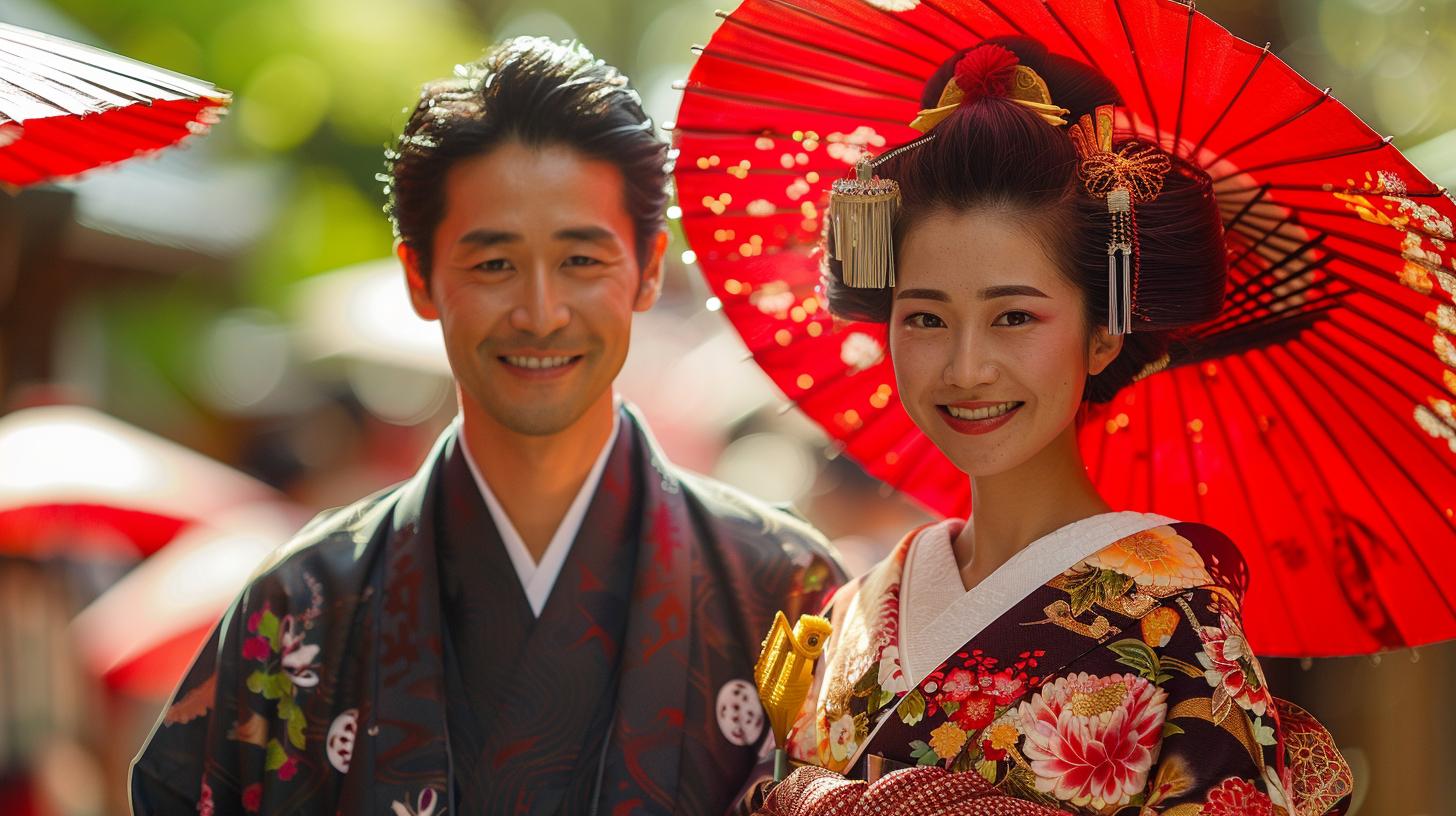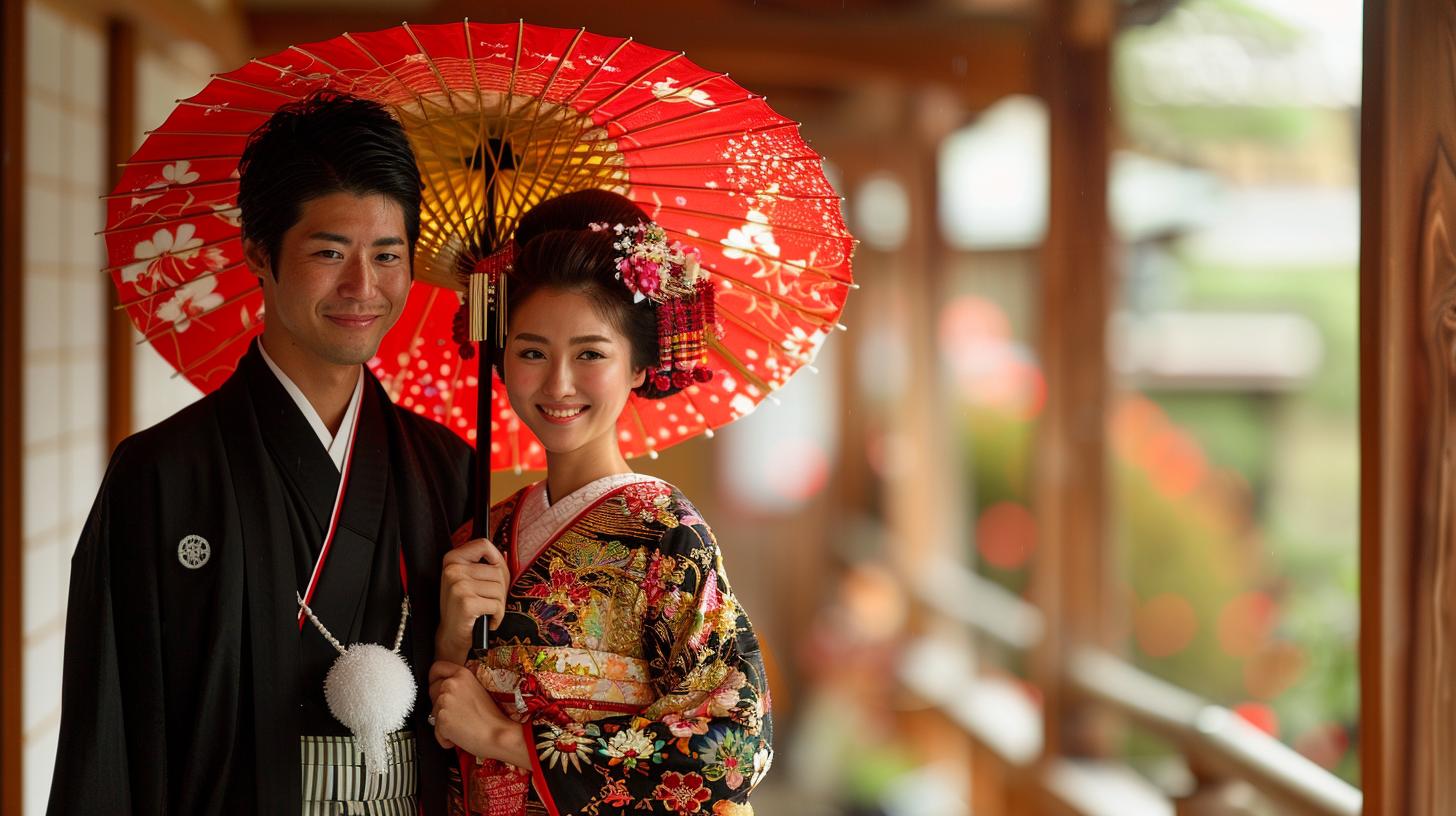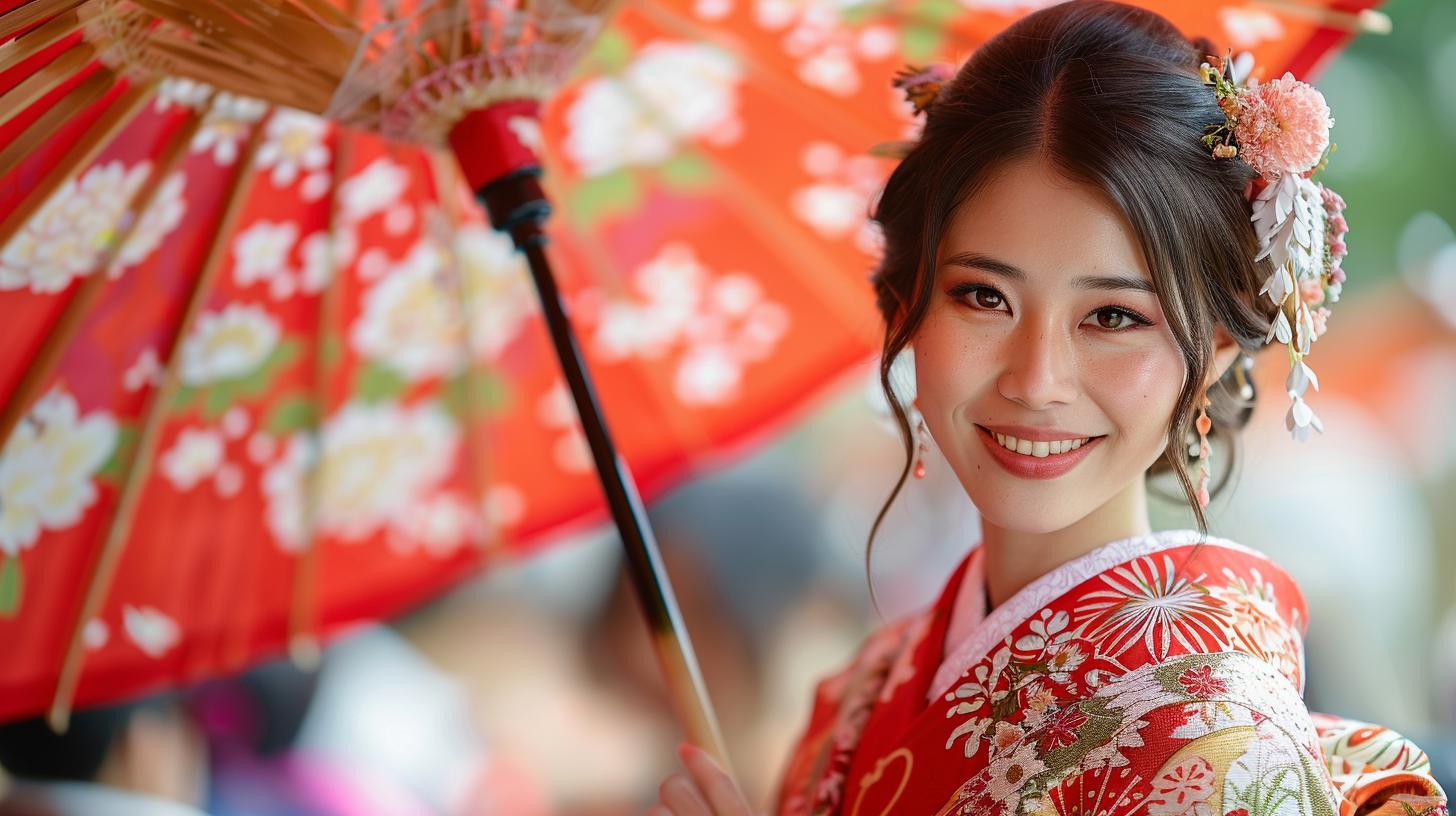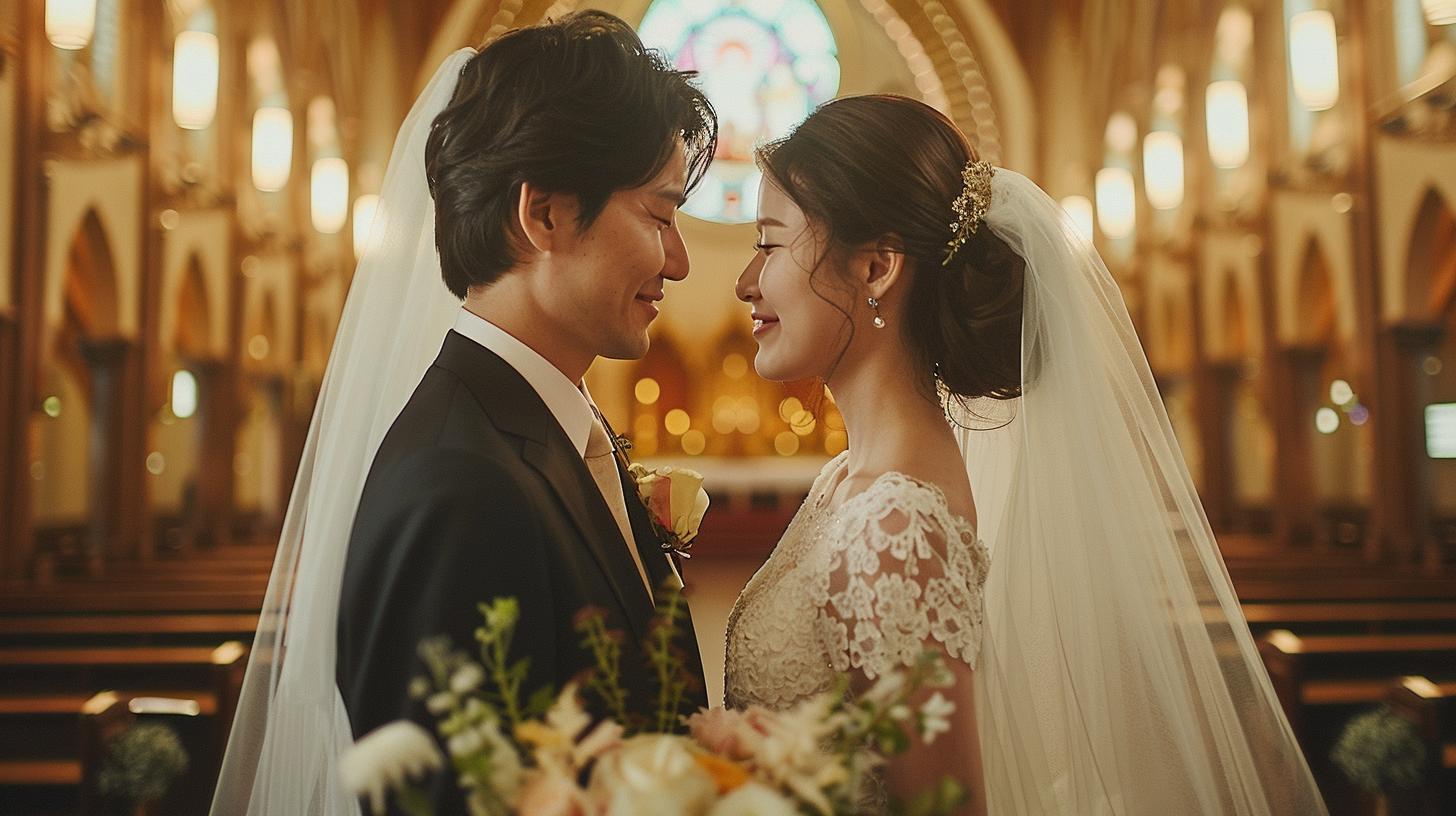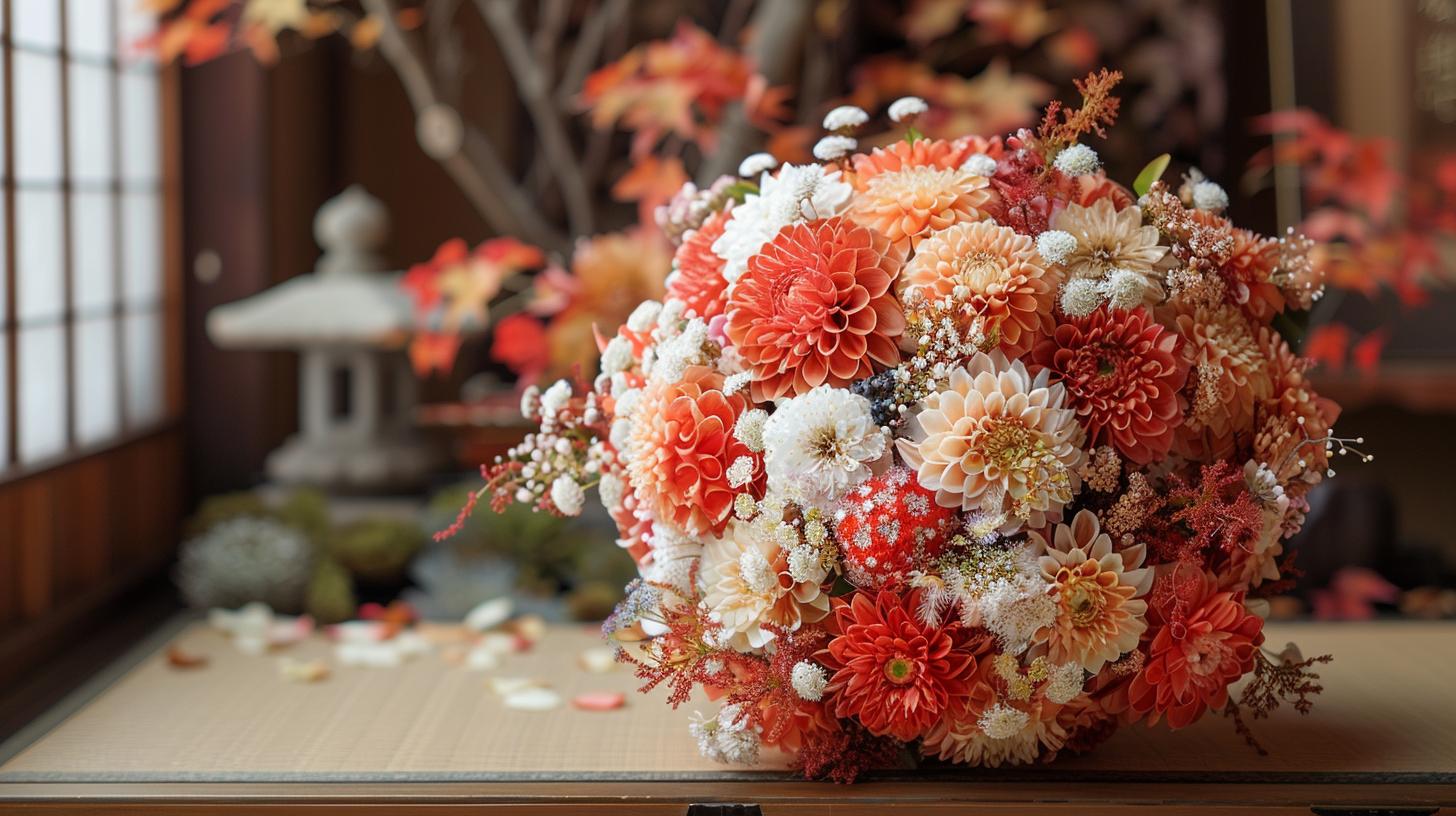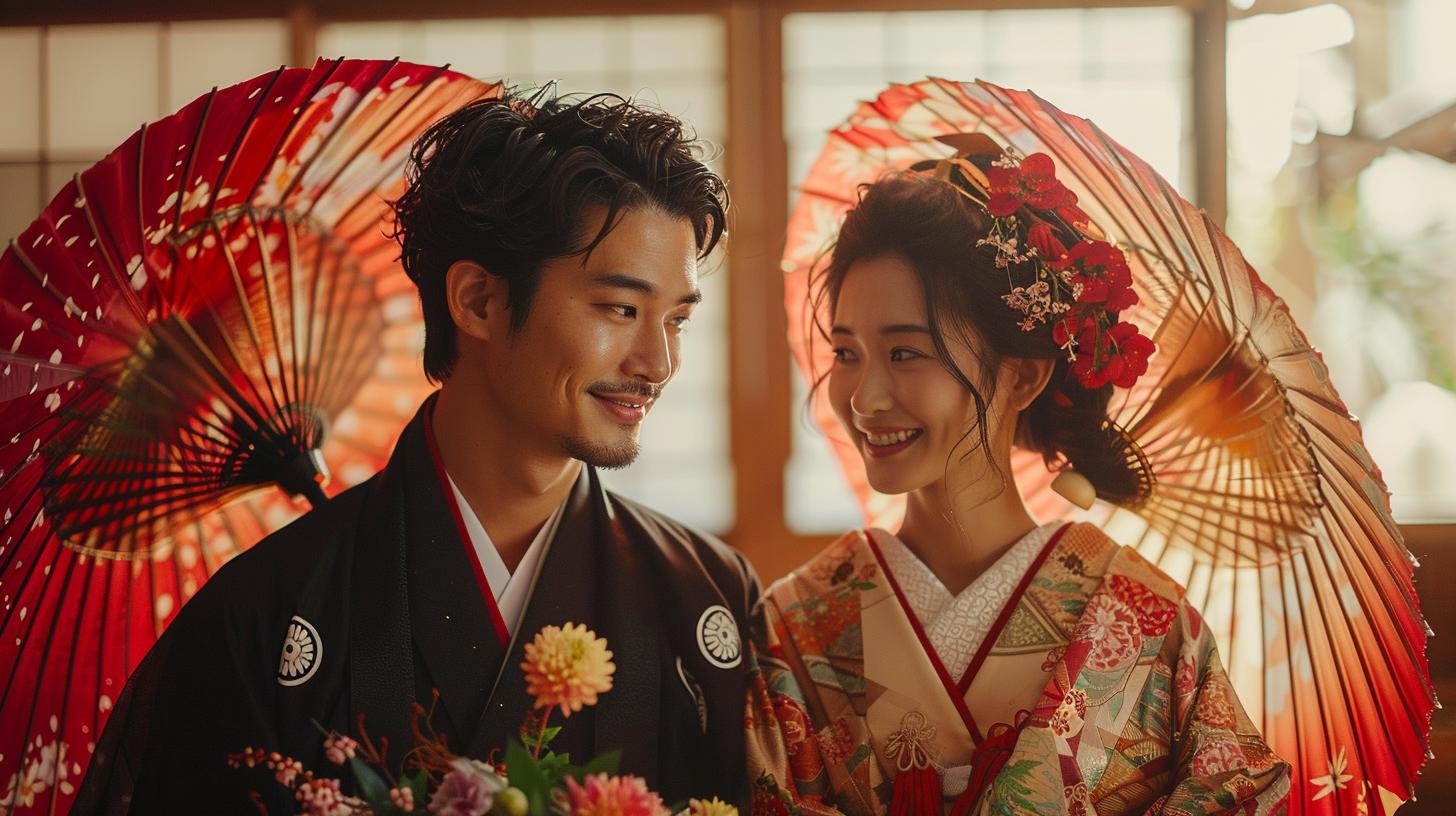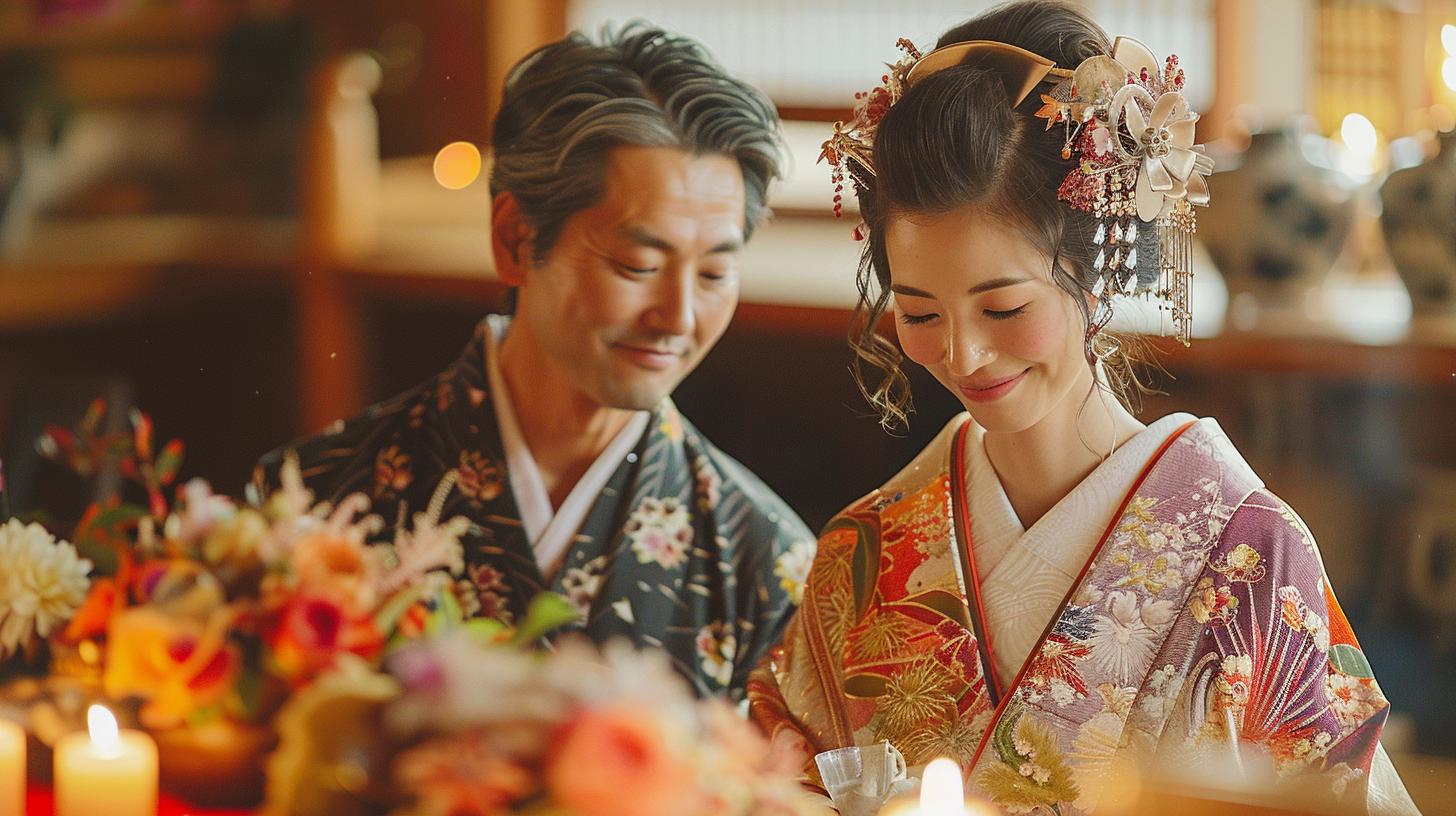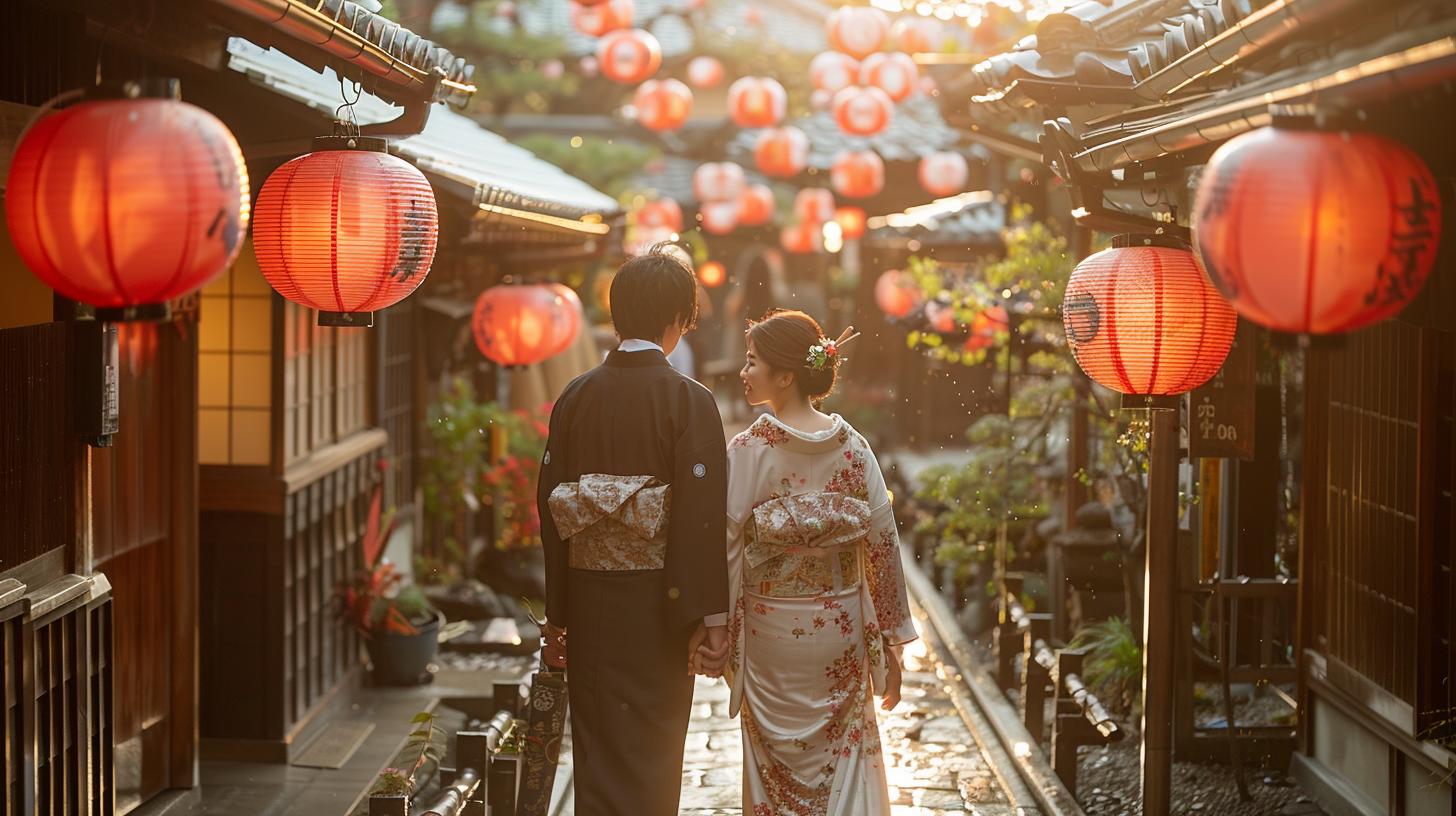Wedding Practices In Japan: Traditional and Modern Influences in Japanese Weddings
Japanese weddings blend traditional customs with modern influences. Shinto-style ceremonies and Western traditions are common, creating unique celebrations that reflect individual styles. Pre-wedding rituals like the betrothal and Sake-Sharing Ceremony are significant, while attire often combines Western and Japanese styles.
Shinto beliefs play a key role, with ceremonies focusing on connection and unity between people and places, incorporating purification rituals and nuptial symbolism. Wedding practices in Japan encapsulate a beautiful blend of ancient traditions and modern influences, creating memorable celebrations of love and unity.
Traditional Japanese Wedding Practices
Japanese weddings are steeped in tradition, blending ancient customs with modern influences to create unique and memorable celebrations of love and unity.
Shinto-Style Weddings
Shinto-style weddings, deeply rooted in Japanese culture and beliefs, represent a significant aspect of traditional Japanese weddings, showcasing the spiritual connection between the couple and the divine.
Betrothal Ceremony (Yuinou)
The betrothal ceremony, known as Yuinou, is a crucial pre-wedding ritual where symbolic gifts are exchanged between the families of the bride and groom, symbolizing their commitment and unity in marriage.
Sake-Sharing Ceremony
The Sake-Sharing Ceremony is a beautiful tradition in Japanese weddings, where the couple exchanges sake as a symbol of their union, accompanied by their parents to seal familial bonds and blessings for the future.
Choosing an Auspicious Wedding Date
Japanese couples carefully select an auspicious date for their wedding, often consulting the Rokuyo calendar to ensure luck and prosperity in their marriage, highlighting the importance of symbolism and tradition in Japanese culture.
Modern Influences in Japanese Weddings
Modern influences play a significant role in shaping Japanese weddings, blending traditional customs with Western elements to create unique and memorable celebrations. From the style of the ceremony to the choice of attire and venue, couples in Japan are incorporating modern trends to personalize their special day.
Western-Style Ceremonies
Western-style ceremonies have become increasingly popular in Japan, with couples adopting elements such as exchanging vows, using wedding rings, and walking down the aisle together. These ceremonies often reflect a more contemporary approach to marriage, emphasizing the couple’s love and commitment in front of their friends and family.
Attire: Blend of Western and Traditional Japanese Styles
When it comes to attire, couples often choose a blend of Western and traditional Japanese styles to create a unique look for their wedding day. Brides may opt for a white wedding dress for the ceremony and change into a traditional kimono for other parts of the celebration, while grooms often wear a combination of Western suits and traditional Japanese garments.
Venue Options: Shinto Shrines vs. Western Venues
Couples in Japan have a variety of venue options to choose from when planning their wedding. Traditional Shinto shrines offer a sense of cultural heritage and spirituality, while Western venues such as hotels and dedicated wedding halls provide a more modern and luxurious setting for the celebration.
The choice of venue reflects the couple’s preferences and the atmosphere they want to create for their special day.
Rituals and Beliefs in Japanese Weddings
Connection and Unity in Shinto Ceremonies
In Japanese weddings, Shinto ceremonies emphasize the deep connection and unity between the couple, their families, and the spiritual world. The rituals performed are symbolic of this bond, highlighting the importance of harmony and respect.
Gift-Giving and Wedding Favors
Gift-giving is an essential part of Japanese weddings, with guests expected to give monetary gifts known as Goshugi. These gifts are given in special envelopes and symbolize support for the couple’s new life together.
Additionally, wedding favors are often provided to guests as tokens of appreciation for their attendance.
Symbolism in Nuptial Cups and Rings
The exchange of nuptial cups and rings holds deep symbolic meaning in Japanese weddings. The cups, representing unity and past, present, and future experiences, are shared by the couple and their parents, signifying the merging of families.
The wedding rings symbolize eternal love and commitment, a key aspect of the marriage union.
.

